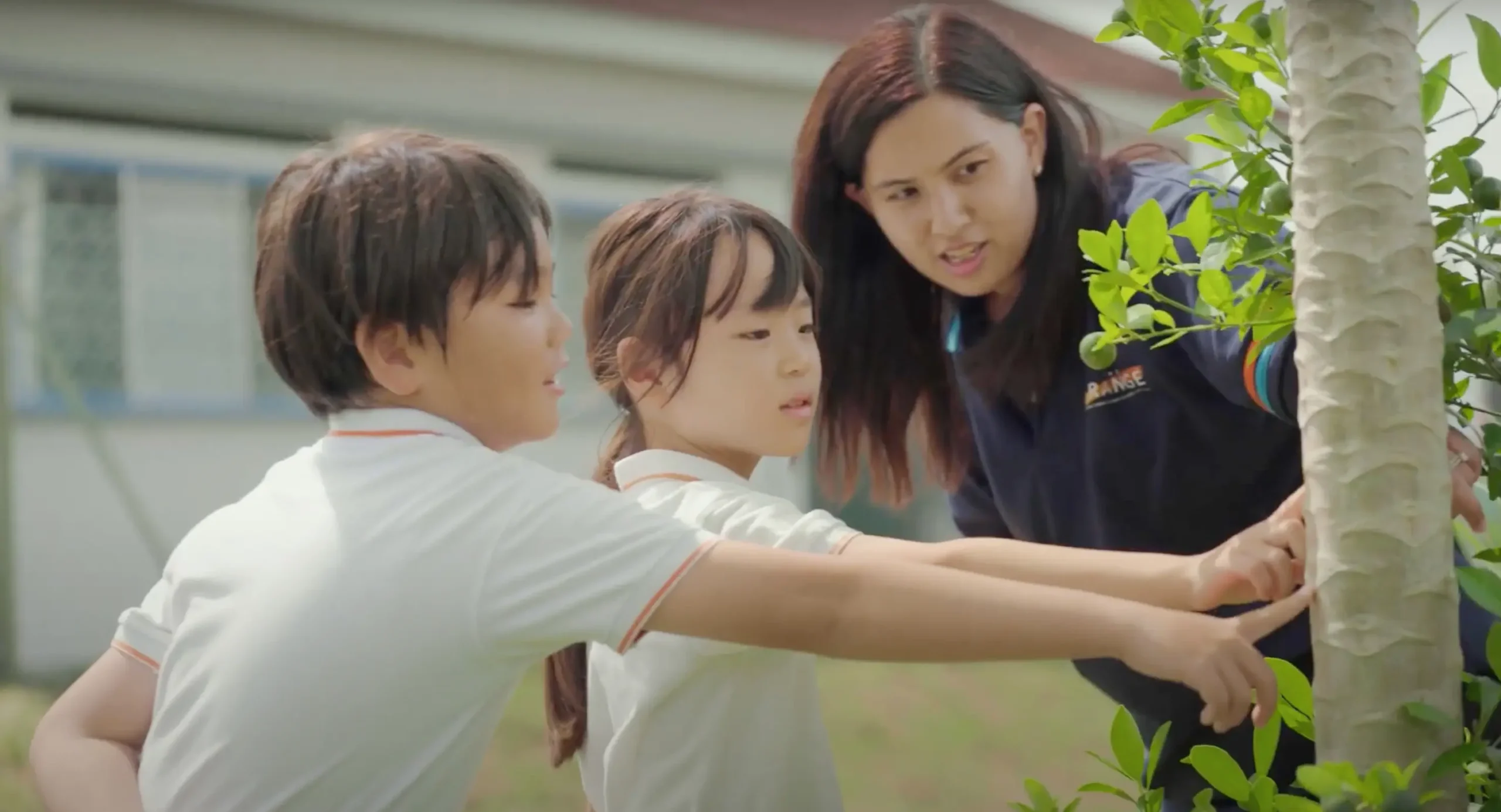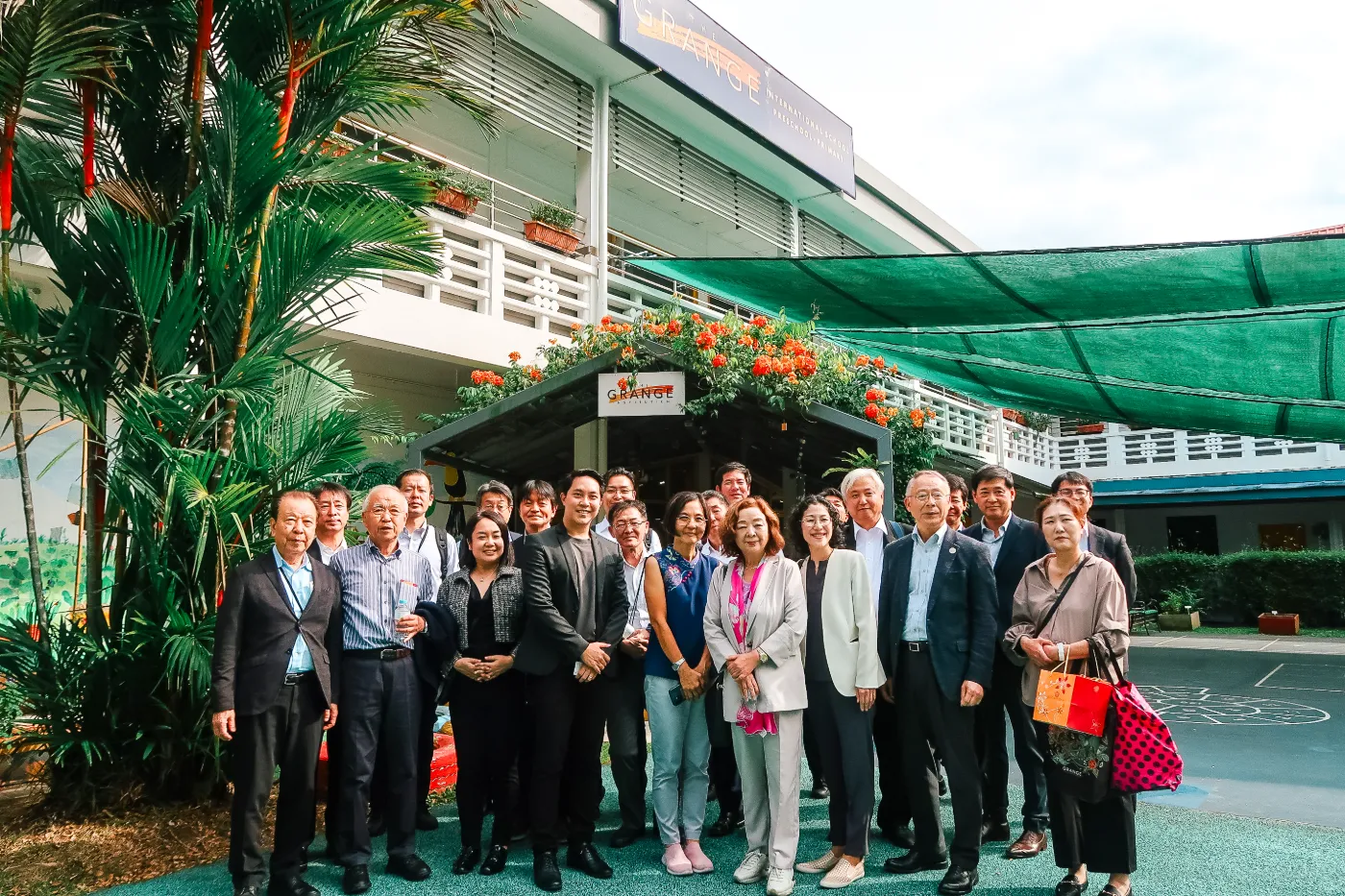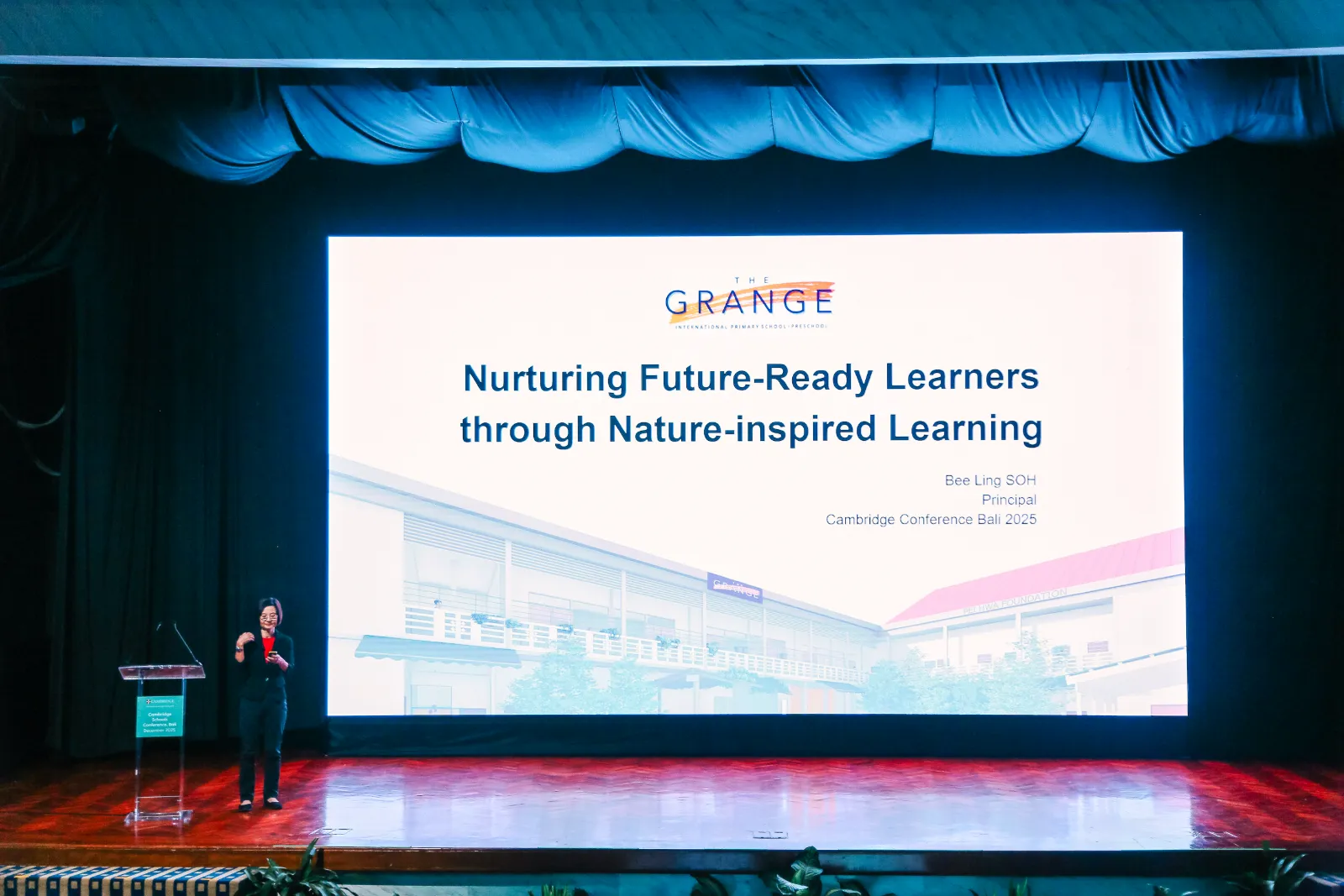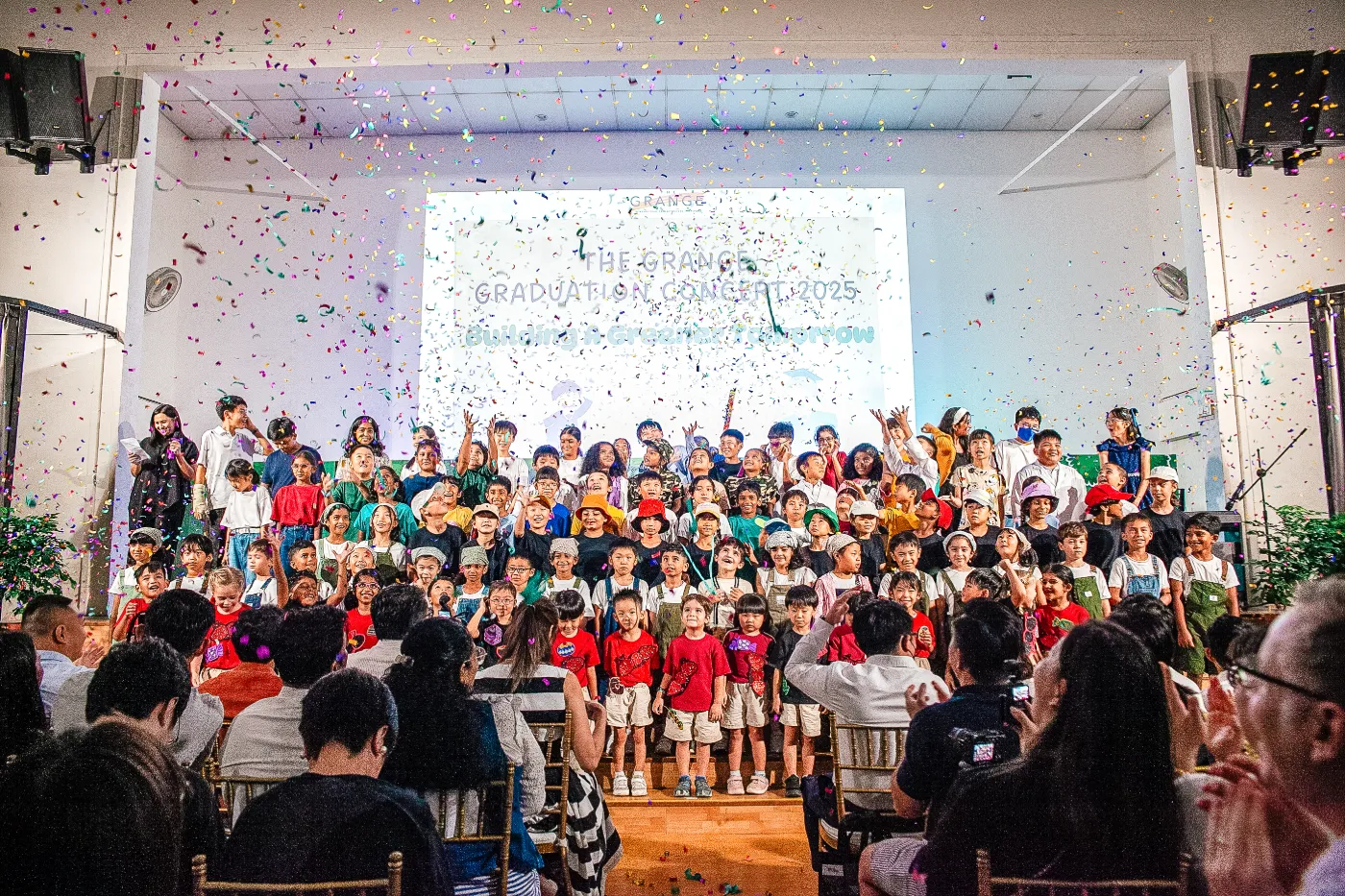As urbanisation and climate change increasingly jeopardise ecosystems globally, schools play a crucial role in promoting environmental awareness. Biodiversity in educational settings extends beyond tree planting or having a school garden. It includes creating living laboratories where students can engage with nature, deepen their scientific understanding, and foster a lasting appreciation for the environment.
At The Grange Institution (TGI), this is demonstrated through our Green Granger Initiative. By incorporating biodiversity into both the school’s infrastructure and curriculum, we cultivate young eco-stewards who value the interconnectedness of all life, regardless of size, big or small.
Why Biodiversity in Schools Matters
Biodiversity, which refers to the diverse forms of life on our planet, is crucial for maintaining healthy ecosystems. Educational institutions that integrate biodiversity into their environment offer students practical learning experiences and support local conservation initiatives. Studies indicate that interacting with nature:
- Encourages environmental stewardship by inspiring students to protect natural habitats
- Enhances cognitive development by improving focus and creativity.
- Boosts mental well-being by reducing stress and anxiety.
The TASS Asia article on Biodiversity in Schools emphasises the role of educational institutions as miniature ecosystems that promote sustainability through organised programs. TGI embodies this concept with its Green Granger Initiative, which revitalises the campus into a vibrant centre of biodiversity.

The Green Granger Initiative: Five Immersive Learning Zones
TGI’s Green Granger Initiative is a comprehensive sustainability program that integrates biodiversity into everyday school life. Through curated ecological zones, students engage with diverse flora and fauna, transforming theoretical science lessons into tangible experiences.
-
-
Climbers & Creepers Zone
- Unlike traditional plants, students observe vines and climbers that rely on supports to grow.
- Explores aerial roots and adaptive plant strategies.
- Teaches adaptability and interdependence in nature.
-
Fruit Tree Zone
- Features fruit-bearing trees like papaya, avocado, and cacao.
- Students participate in planting, nurturing, and harvesting.
- Connects agriculture to food security and sustainable practices.
-
Farm Alley
- Anorganic garden where students grow vegetables and herbs.
- Harvests are shared with families, reinforcing farm-to-table concepts.
- Lessons on composting, soil health, and responsible consumption.
-
Pond Community
- A self-sustaining aquatic ecosystem with fish, aquatic plants, and microorganisms.
- Demonstrates food chains, water cycles, and biodiversity balance.
- Encourages conservation of wetland habitats.
-
Forest Zone
- Home to 30-metre-tall rainforest trees, mimicking natural forests.
- Students explore native flora/fauna and carbon sequestration.
- Highlights the importance of preserving old-growth ecosystems.
-
Under teachers’ supervision, students safely engage with these zones, turning science into an experiential, multidisciplinary journey.
Teaching Engineering and Science Through Real-World Learning
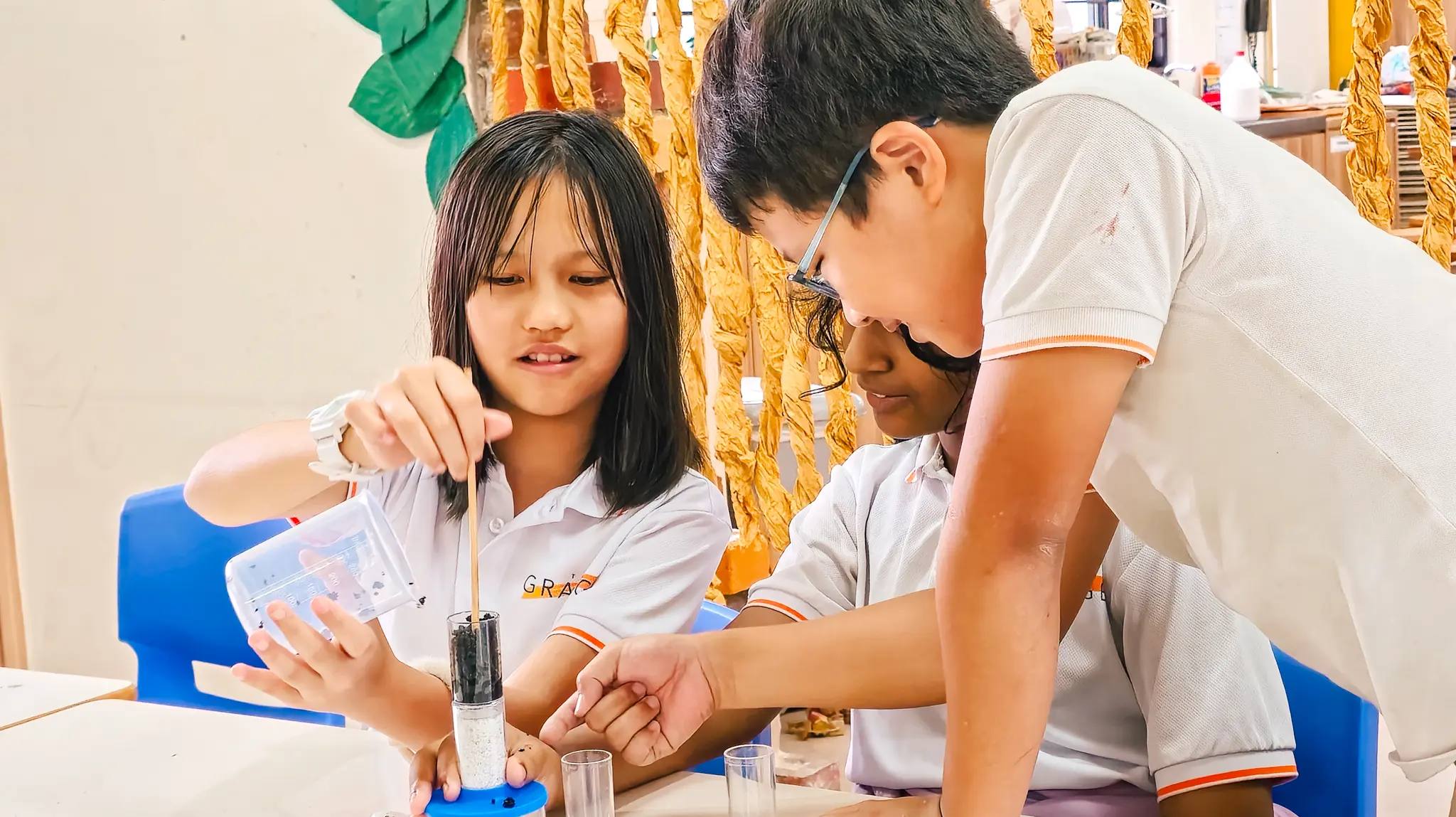
TGI’s approach aligns with UNESCO’s call for schools to incorporate sustainability into STEM education as seen in our featured video on UNESCO’s World Engineering Day for Sustainable Development 2025. The Green Granger Initiative bridges theory and practice by:
- Engineering Solutions:Experimenting on water filtration, and sustainable farming techniques.
- Biology in Action: Students track butterfly life cycles, study photosynthesis in fruit trees, and monitor pond ecosystems.
- Ecology Projects: Biodiversity surveys, carbon footprint calculations, and habitat restoration efforts.
This hands-on learning cultivates critical thinking, problem-solving, and innovation. These skills are essential for future sustainability leaders.
Nurturing Respect for All Life
The Green Granger Initiative instils empathy and responsibility toward nature:
- “No Life Too Small” Philosophy: Students learn that every organism from soil microbes to towering trees, they play a crucial role in maintaining a balanced ecosystem.
- Wildlife Conservation: Lessons on endangered species and habitat protection.
- Community Engagement: Tree-planting drives, eco-fairs, and partnerships with local sustainability groups.
The Green Granger Initiative at TGI demonstrates that educational institutions can serve as significant catalysts in driving environment change. By integrating biodiversity areas, experiential science, and value-based education, we equip students to safeguard our planet. Through programs like Green Granger, TGI not only educate about sustainability but also strive to motivate a generation to advocate for it.
Join us and be a part of our initiative to foster a sustainable future. Enrol your child now at The Grange Institution, where they will gain insights into environmental responsibility, acquire essential skills, and play a part in promoting a healthier planet for generations to come.
Get in touch with us today for more information!


